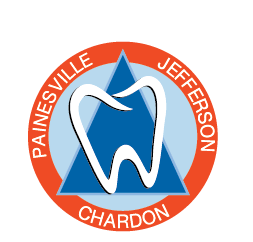
Have you ever dismissed a seemingly harmless bad habit, only to discover later that it had more significant consequences than you initially realized? This scenario may sound familiar to those who have dealt with cheek biting, which falls under the category of body-focused repetitive behaviors (BFRBs). Cheek biting comes in various forms, each with its own risks. Keep reading to learn more about this unfortunate habit and offer guidance on how to break free from it.
What Are the Different Types of Cheek Biting?
You may be surprised to learn that there are five primary types of cheek biting, which are:
- Body-focused repetitive disorder (BRFD) – This condition, as the name suggests, refers to compulsive cheek biting that individuals find challenging to control.
- Habitual cheek biting – This type of check biting is a semiconscious activity a person can substitute with another less concerning behavior.
- Cheek biting while asleep – This occurs inadvertently, and luckily, acquiring a gentle mouthguard from a dentist can avert direct contact between the teeth and the cheeks.
- Regular accidental cheek biting – If it happens consistently but unintentionally, it could be attributed to teeth misalignment or a jaw issue. Orthodontic treatment may provide a solution.
- Periodic accidental cheek biting – If it’s inadvertent but infrequent, there’s no need for concern.
Dangers of Cheek Biting
The primary issue associated with consistently biting your cheek is the potential for injuring the oral tissues, leading to the development of sores and ulcers. A study from 2017 indicated that cheek biting itself cannot cause oral cancer, but in cases where cancer is already present due to other factors, it could potentially exacerbate its progression.
Individuals who engage in compulsive cheek biting may encounter feelings of guilt, shame, or hopelessness. They might also limit their social interactions due to concerns about others noticing this behavior. Additionally, the emergence of wisdom teeth can cause irritation and cuts on the cheeks, often seen as occasional accidental cheek biting.
How Does Someone Stop Cheek Biting?
If you find yourself experiencing frequent unintentional cheek bites, it’s advisable to consult your dentist. They are likely to offer a straightforward solution. However, if you’re a chronic cheek biter, it’s essential to determine whether it’s a habit or a compulsion, which can be a more complex issue to address.
For those dealing with a habitual cheek-biting tendency, some individuals have effectively overcome it by using sugarless gum as a substitute, practicing deep breathing techniques when the urge to chew their cheeks arises, or identifying triggers that prompt this behavior and replacing it with another activity as necessary.
If it’s a compulsive behavior, addressing cheek chewing becomes more intricate. Treatment should primarily target the behavioral and emotional aspects. Here are some recommended steps to consider:
- Seek healthy solutions to manage anxiety, like exercise, meditation, mindfulness, and yoga
- Remove cheek chewing triggers
- Lower stress levels
- Talk therapy
- Hypnosis
If you’ve recently noticed cheek biting or have been doing it for a while, the first step is to identify whether it’s a casual habit or a more persistent issue. Once you know this, you can decide if you should consult a dentist, psychologist, or if you can address it independently.
About the Practice
Hilltop Family Dental is dedicated to meeting the oral health needs of your entire family, all in one convenient location. Our welcoming and caring team strives to make your care both comfortable and effective. Whether you struggle with nighttime cheek biting or occasional daytime accidents, we offer treatment options to help you enjoy a pain-free smile. For further details or to book an appointment, reach out to our office at (440) 285-8211 or visit our website.
